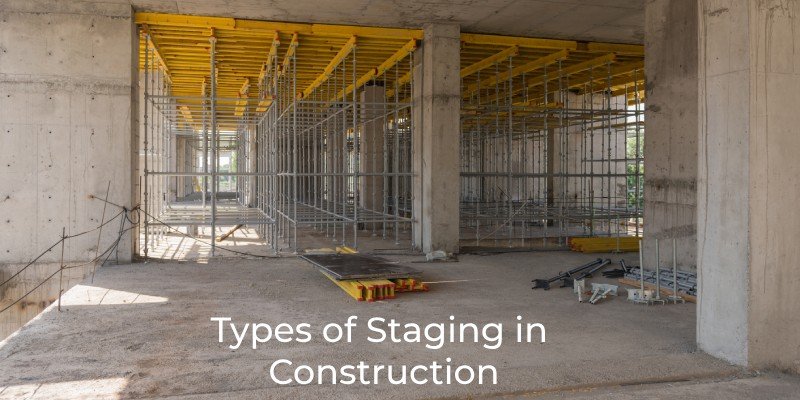Essential Documents Required for House Construction in India
Building a house in India is a monumental endeavour that demands careful attention to regulatory requirements and legal procedures. Before embarking on such a significant project, it’s imperative to gather all the necessary documents to ensure compliance with local laws and regulations. This article serves as a comprehensive guide to the essential documents required for house construction in India.
Essential Documents Required for House Construction in India
Here is the list of Essential Documents Required for House Construction in India:
1. Land Ownership Documents
Before embarking on house construction in India, securing essential land ownership documents is paramount to establishing legal ownership and ensuring compliance with regulations.
Land Title Deed
The land title deed stands as an irrefutable testament to your ownership of the plot where you intend to construct your dream home. This document serves as the cornerstone of your legal claim to the land and is indispensable for obtaining various permits and approvals necessary for construction.
Encumbrance Certificate
An encumbrance certificate holds significant importance as it verifies the property’s ownership status, assuring potential buyers or builders that the land is free from any legal or financial encumbrances. It acts as a safeguard against unforeseen liabilities and ensures a smooth transfer of ownership during the construction process.
Latest Property Tax Receipts
Securing the latest property tax receipts is not just a legal obligation but also a testament to your compliance with local taxation laws. These receipts serve as concrete evidence of your financial responsibilities towards the land, which is often a prerequisite for obtaining construction permits and approvals.
Land Use Certificate
A land use certificate provides clarity on the permissible usage of the land according to local zoning regulations. It is essential to ensure that residential construction aligns with the designated purpose of the plot, mitigating any potential legal disputes arising from unauthorized land use.
Revenue Sketch and Khata Certificate
The revenue sketch and khata certificate offer invaluable insights into the land’s dimensions, location, and ownership history. These documents not only authenticate the property but also provide essential details for planning and executing the construction project. They serve as a roadmap for builders and authorities alike, ensuring transparency and accountability throughout the process.
2. Construction Approval Documents

Obtaining necessary construction approval documents is crucial for navigating regulatory requirements and obtaining permits necessary for initiating house construction projects in India.
Building Plan
A meticulously drafted building plan is the blueprint that lays the foundation for your future abode. Prepared by a licensed architect, it delineates every aspect of the proposed structure, from its design and layout to the materials and specifications to be used. This document is indispensable for obtaining construction permits and serves as a guiding light for builders and contractors.
Structural Stability Certificate
A structural stability certificate is a testament to the structural integrity of your proposed building design. Issued by a qualified structural engineer, it attests to the structure’s ability to withstand anticipated loads and seismic activity. This certificate not only ensures the safety of occupants but also underscores your commitment to building standards and regulations.
No Objection Certificates (NOCs)
No construction project is complete without the requisite No Objection Certificates (NOCs) from various authorities. These certificates, obtained from entities such as the local municipality, fire department, pollution control board, and electricity department, signify their consent for the proposed construction. They are a testament to your compliance with regulatory requirements and standards, ensuring a seamless construction process.
3. Additional Considerations and Expert Consultation
When planning to build a house in India, consider these crucial factors and seek expert advice for a successful project:
Know Local Regulations
Understand the local construction regulations thoroughly. Each area has its own zoning laws, building codes, and permit requirements. Consult with local authorities or hire professionals familiar with these regulations to ensure compliance and avoid legal issues.
Environmental Impact Assessment
Conduct an environmental impact assessment (EIA) if necessary. This evaluation helps identify and address potential environmental impacts of your project, ensuring compliance with regulations and minimizing harm to the surroundings.
Budget and Financial Planning
Create a detailed budget and financial plan. Consider all expenses, including land acquisition, construction costs, taxes, permits, utilities, and contingency funds. Seek guidance from financial experts to ensure your budget is realistic and adequate for the project.
Effective Project Management
Implement efficient project management practices. Establish clear timelines for each phase of the construction and coordinate tasks effectively to prevent delays. Hiring a qualified project manager can streamline operations and address any issues promptly.
Seek Expert Consultation
Consult with experts in the construction industry. Architects, engineers, lawyers, and financial advisors can offer valuable insights and guidance tailored to your project. Their expertise can help you make informed decisions and navigate challenges effectively.
Conclusion
We have covered a detailed guide on list of documents required for house construction. Embarking on a house construction project in India requires meticulous planning, foresight, and adherence to regulatory requirements. By securing the essential documents outlined in this guide, homeowners can lay a solid foundation for their dream home and navigate the complexities of the construction process with confidence and ease.
FAQs
- What is the significance of a land title deed?
- A land title deed serves as proof of ownership of the plot on which a house is to be constructed. It establishes legal rights to the land and is essential for obtaining construction permits.
- Why is an encumbrance certificate necessary?
- An encumbrance certificate verifies that the land is free from any legal or financial liabilities, ensuring smooth ownership transfer during the construction process.
- What role do No Objection Certificates (NOCs) play in construction?
- NOCs are approvals obtained from various authorities, indicating their consent for the construction project. These certificates ensure compliance with relevant regulations and standards.
- Why is it essential to consult legal and architectural experts?
- Legal and architectural experts provide guidance on documentation requirements, regulatory compliance, and navigating legal challenges, ensuring a smooth construction process.
- How can homeowners expedite the document procurement process?
- Homeowners can expedite the process by seeking professional assistance, maintaining clear communication with authorities, and ensuring all required paperwork is complete and accurate.





